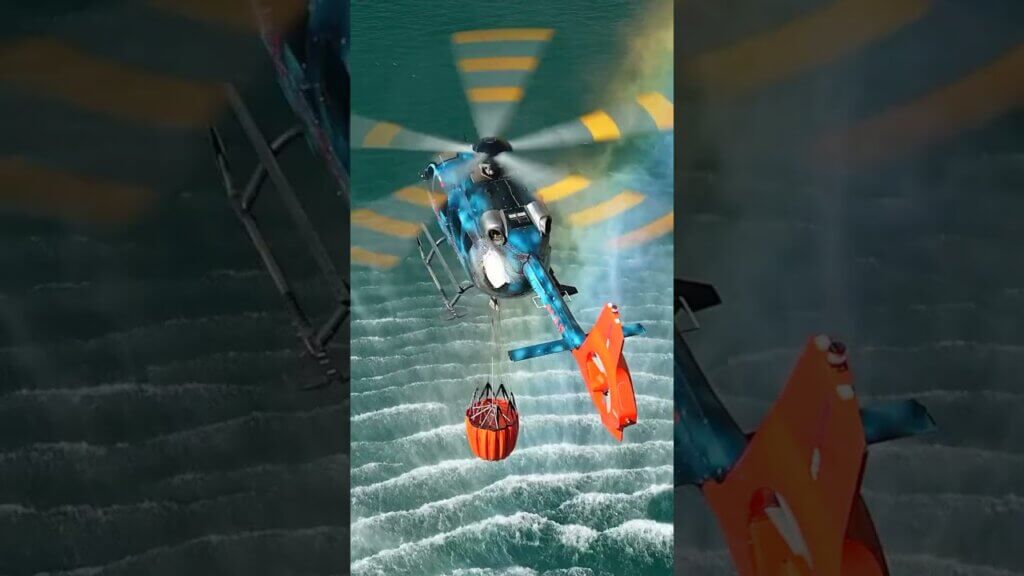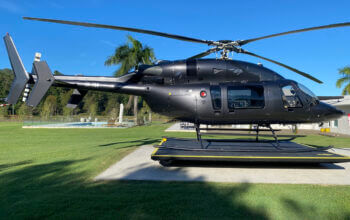
Following the Russian government’s ban on agricultural and food product imports from the European Union, U.S., Canada, Australia and Norway, it is now considering imposing similar sanctions against those countries in the field of aviation.
The sanctions are a response to Western penalties imposed on Russia over its role in the crisis in Ukraine.
In the latest development, Prime Minister Dmitry Medvedev said Russia is “potentially ready to introduce protective measures” in the national helicopter industry. He said that “it should be done sensibly,” because the government “understands the importance of cooperation in this area.”
The range of possible measures is wide — from increased import tariffs on parts used in the Russian helicopter industry, to the imposition of a blanket ban on the export of Russian helicopters to Western countries.
The imposition of a ban on the supply of spare parts for Russian helicopters used in European armies, including popular models like the Mil Mi-171SH military transport helicopter and Mi-24 combat helicopter, could also be a part of the Russian government’s plans.
The possibility of such a move has already sparked concerns in some EU countries. According to Czech ministry of defense representatives, the end of supplies of spare parts for Mi-171SH and Mi-24 helicopters (which the country recently purchased from Russia) would “cause a serious problem” for the Czech military.
The Czechs have about 50 Russian helicopters in their fleet, including the Mi-171SH and Mi-24. According to Czech State Secretary Daniel Kostoval, a halt to Russian supply would require a reduction in the active fleet to use some aircraft for parts, while a longer-term solution would leave the Czechs looking for a Western-made helicopter to replace the Russian aircraft.
It would likely be a similar situation in other EU states, and in particular those from Eastern Europe, which traditionally purchase helicopters in Russia.
The fallout could be further-reaching than Europe, though. The Russian government may also consider suspending the contract for 88 Mi-17 helicopters for the Afghan Air Force, at least 30 of which are destined for special operations to combat terrorism and drug trafficking.
There are already concerns in the U.S. about the potential effect in Afghanistan of losing the Mi-17. According to Marine Corps Gen. Joseph Dunford, the commander of the U.S. Forces in Afghanistan, the Russian helicopters are critical for protection of American soldiers who remain in the country.
“The inability of the Afghans to have the operational reach represented by the Mi-17 will seriously deteriorate their ability to take the fight to the enemy,” he said during testimony before the Senate Armed Services Committee. “Their inability to take the fight to the enemy will actually put young Americans in harm’s way in 2015 and beyond.”
According to analysts at the Pentagon, a switch to the more complex U.S.-made helicopters would significantly slow the development of the Afghan air force due to the need to retrain pilots and support staff.
Back in Russia, the country is already seeing the effect of Western sanctions banning the import of a number of components for Russian helicopter engineering. In addition to spare parts, the ban also involves partial suspension of the supply of manufacturing equipment to the Russian helicopter industry.
The latter decision has already resulted in the disruption of supplies to the production facilities of Russian Helicopters, the Russian helicopter monopoly, and interrupted operations of the Ulan-Ude Aviation Plant, a Russian Helicopters subsidiary.
However the Russian helicopter industry’s biggest concern at present is the severing of the supply of Ukrainian helicopter engines.
According to Andrew Shibitov, deputy director of production at Russian Helicopters, the company has been heavily dependent on the imports of Ukrainian helicopter engines.
To offset this, the Russian ministry of industry has already designed a program to establish the production of helicopter engines at existing domestic manufacturing facilities. The project is expected to be implemented during the next 12 to 18 months.









